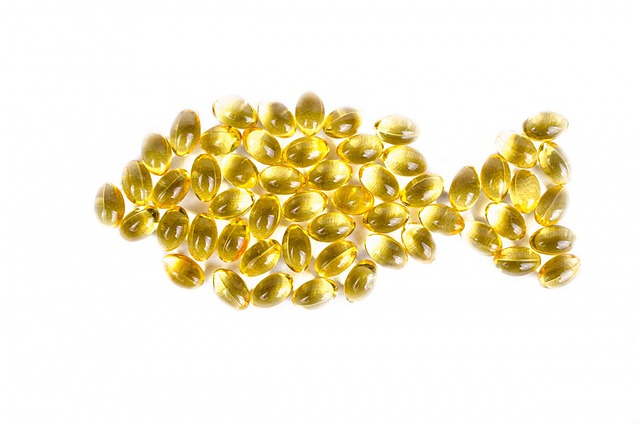Fish oil has long been heralded as a miracle supplement in the world of health and nutrition. From promoting heart health to enhancing brain function, the benefits touted are numerous. But recently, questions have arisen about the true efficacy and safety of fish oil supplements. Should you be worried about fish oil? Let’s delve into the research to uncover the truth.
Comment on the recent BMJ investigation
A recent study published in BMJ Medicine investigated the effects of Omega-3 fatty acid supplements, commonly found in fish oil, on cardiovascular health. Conducting a prospective cohort study with 415,737 participants aged 40-69 from the UK Biobank, researchers found mixed results depending on the cardiovascular status of the individuals.
For those without known cardiovascular disease, regular use of fish oil supplements was linked to an increased risk of atrial fibrillation and stroke. However, in individuals diagnosed with cardiovascular conditions, fish oil supplements showed beneficial effects, such as reducing the progression from atrial fibrillation to major adverse cardiovascular events and myocardial infarction, as well as from heart failure to death.
The study concluded that while fish oil supplements may help people with existing cardiovascular issues transition more safely through various stages of the disease, their use for primary prevention in healthy individuals could be harmful.

Problems with the study
The recent study on Omega-3 fatty acids published in BMJ Medicine, while extensive and insightful, has several limitations and potential faults that should be considered:
- Observational Nature: The study is observational, which means it cannot establish causation, only association. There may be unmeasured confounding variables that affect the results.
- Self-Reported Data: The reliance on self-reported usage of fish oil supplements can introduce recall bias and inaccuracies. Participants may underreport or overreport their supplement intake.
- Single Population Sample: The study’s participants were from the UK Biobank, which may not be representative of the global population. Results might differ in diverse populations with different dietary habits and genetic backgrounds.
- Undefined Dosage and Duration: The specific dosage and duration of fish oil supplement use were not clearly defined, which could impact the outcomes. Different dosages may have varying effects on heart health.
- Baseline Health Status: The baseline cardiovascular health of participants was not uniformly assessed before starting the study. Individuals with undiagnosed or subclinical cardiovascular conditions may have influenced the results.
- Lack of Control for Other Dietary Factors: The study did not comprehensively control for other dietary factors and overall lifestyle habits that could affect cardiovascular health. Omega-3 intake from food sources wasn’t distinguished from supplement use.
- Potential Confounders: Despite adjustments for various confounders, residual confounding by factors such as medication use, other dietary supplements, and genetic predispositions cannot be ruled out.
These limitations suggest that while the study provides valuable insights, its findings should be interpreted with caution. Further randomized controlled trials are necessary to establish a clearer causal relationship and better understand the specific circumstances under which Omega-3 fatty acids might be beneficial or detrimental to heart health.
Understanding Fish Oil
Fish oil is derived from the tissues of oily fish and is rich in omega-3 fatty acids, primarily EPA (eicosapentaenoic acid) and DHA (docosahexaenoic acid). These omega-3s are essential fats that our bodies cannot produce on their own, which means we must obtain them through our diet or supplements.
Promoted Benefits of Fish Oil
- Heart Health: One of the most significant claims is that fish oil can reduce the risk of heart disease. Omega-3s are believed to lower triglyceride levels, reduce inflammation, and decrease blood pressure.
- Brain Function: DHA is a major structural component of the brain. Consuming adequate levels of DHA has been linked to improved cognitive function and a lower risk of neurodegenerative diseases.
- Joint Health: Omega-3s have anti-inflammatory properties, which can help alleviate symptoms of rheumatoid arthritis and other inflammatory joint conditions.
- Eye Health: DHA is also a critical component of the retina. Adequate intake of omega-3s has been associated with a reduced risk of macular degeneration.
The Rising Concerns
Despite these widely accepted benefits, some recent studies, such as the one previously discussed, and expert opinions have brought concerns to light, questioning the efficacy and safety of fish oil supplementation.
Efficacy Questions
- Inconsistent Study Results: While many studies highlight the benefits of fish oil, others show little to no effect. For instance, a comprehensive review by the Cochrane Collaboration in 2018 found that omega-3 supplements had little to no significant impact on preventing heart disease.
- Bioavailability: Not all fish oil supplements are created equal. The form of omega-3s in the supplement (triglycerides vs. ethyl esters) can affect how well they are absorbed and utilized by the body.
Safety Concerns
- Oxidation: Fish oil is prone to oxidation, which can lead to the formation of harmful compounds. Oxidized fish oil can be detrimental rather than beneficial, potentially causing oxidative stress and inflammation.
- Contaminants: Depending on the source, fish oil supplements can contain environmental pollutants like heavy metals (e.g., mercury) and PCBs. Ensuring high-quality, purified fish oil is crucial to avoid these contaminants.
- Dosage and Interactions: High doses of fish oil can lead to adverse effects such as bleeding disorders, gastrointestinal issues, and potential interactions with medications.

What Does the Research Say?
To navigate these concerns, let’s look at some key studies and expert opinions:
Cardiovascular Health
A study published in the Journal of the American Medical Association (JAMA) in 2019 analyzed data from multiple clinical trials and found that while high-dose omega-3 supplements did reduce the risk of heart attacks, the overall benefit to cardiovascular mortality was minimal.
Brain Health
Research published in the American Journal of Clinical Nutrition in 2018 suggested that while omega-3 supplements can support cognitive function in older adults, their impact is more pronounced in those who have dietary deficiencies of these fatty acids.
Joint Health
A study in the Annals of the Rheumatic Diseases highlighted that fish oil supplements could reduce symptoms of rheumatoid arthritis, though the benefits were modest and varied among individuals.
Should You Take Fish Oil?
Given the mixed findings, here are some guidelines to consider:
Diet First
Prioritize obtaining omega-3s from whole food sources. Fatty fish like salmon, mackerel, and sardines are excellent choices. They not only provide EPA and DHA but also come with other beneficial nutrients.
Quality Matters
If you choose to take a fish oil supplement, opt for high-quality brands that ensure purity and minimal oxidation. Look for third-party testing and certification to ensure the product is free from contaminants.
Consult Healthcare Providers
Before starting any new supplement regimen, especially at higher doses, consult with your healthcare provider. They can help determine the right dosage for your needs and monitor for potential interactions with other medications.
Balance and Moderation
Remember that more is not always better. Stick to recommended dosages and consider balancing fish oil intake with other sources of omega-3s, such as flaxseeds and walnuts, which provide ALA (alpha-linolenic acid).
Conclusion
Fish oil remains a complex topic within the realm of nutrition and wellness. While there are undeniable benefits, it’s essential to approach supplementation with informed caution. By prioritizing quality, consulting healthcare professionals, and maintaining a balanced diet, you can make the most of what fish oil has to offer without falling prey to its potential pitfalls.
Ultimately, staying updated on the latest research and making well-informed decisions will help you navigate the world of supplements effectively. Should you be worried about fish oil? With the right knowledge, the answer leans towards no – but staying vigilant and informed is key to ensuring your health journey is both safe and beneficial.




